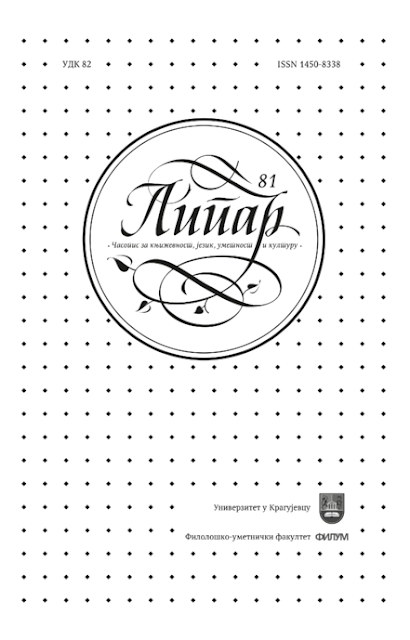EXPLORING ADJECTIVAL FREE ADJUNCTS: A CROSS-LINGUISTIC STUDY OF ENGLISH AND SERBIAN
EXPLORING ADJECTIVAL FREE ADJUNCTS: A CROSS-LINGUISTIC STUDY OF ENGLISH AND SERBIAN
Author(s): Tiana M. Tošić-LojanicaSubject(s): Language studies, Language and Literature Studies, Foreign languages learning, Theoretical Linguistics, Applied Linguistics, Comparative Linguistics, Descriptive linguistics, South Slavic Languages, Translation Studies
Published by: Универзитет у Крагујевцу
Keywords: adjectival free adjunct;secondary predicates in English;predicate attribute;verbless clause
Summary/Abstract: The paper examines adjectival free adjuncts in English and Serbian using a double and bidirec- tional corpus consisting of novels and their translations in both languages. The objectives of this study are to describe the formal and semantic characteristics of adjectival free adjuncts and to compare these constructions in the two languages based on their translational equivalents. The analysis of adjectival free adjuncts in English and Serbian demonstrates that they can be considered formally and semantically equivalent constructions, as evidenced by nearly 85% of cases showing absolute alignment in translation. In the remaining cases, adjuncts are conveyed through other phrases and clauses. In the translation from English to Serbian, translators resort to non-finite and relative clauses when the adjective is accompanied by a longer complement in English. On the other hand, when rendered into Serbian, adjuncts may change position or be translated as full adverbial clauses with an explicit conjunction to avoid ambiguity. In a number of instances, the comma is omitted in translation, indicating the close relation between adjectival free adjuncts and depictive secondary predicates.
Journal: Липар - часопис за књижевност, језик, уметност и културу
- Issue Year: XXIV/2023
- Issue No: 81
- Page Range: 119-136
- Page Count: 18
- Language: English

